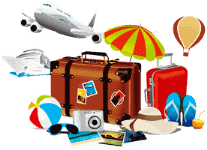 Planning a tour to Kenya can be an exciting and enriching experience, allowing you to immerse yourself in the country's stunning landscapes, diverse wildlife, and vibrant culture. However, with so many attractions and logistical considerations, it's essential to have a clear understanding of key aspects before embarking on your journey. Let us address five frequently asked questions (FAQs) regarding consultation for a tour in Kenya, providing you with valuable insights to help prepare for a memorable and smooth travel experience. From the renowned Maasai Mara National Reserve, teeming with wildlife, to the majestic Mount Kenya and the pristine beaches along the coastal region, Homejoy Safari Adventures will highlight some of the most captivating destinations that should be on your itinerary. Understanding the climate and wildlife patterns can greatly enhance your experience. Whether it's witnessing the epic wildebeest migration in the Maasai Mara or enjoying optimal weather conditions for outdoor activities, we'll guide you in determining the ideal time to explore this remarkable country. Get insights into the necessary documents, such as a valid passport and visa, guidance on how to obtain them, and any specific requirements based on your nationality. Currency exchange and accessing money during your Kenya Safaris are important considerations. We can help you know the currency used in Kenya, the Kenyan Shilling, and provide information on where and how to exchange currency or access cash through ATMs. Cultural etiquette plays a significant role in ensuring respectful interactions during your visit. We'll provide valuable insights into local customs, greetings, dress codes, and wildlife etiquette to help you navigate Kenya's cultural landscape with sensitivity and respect. By addressing these key FAQs, we aim to equip you with essential information to plan a successful and rewarding Kenya Safari tour, enabling you to make the most of your time in this captivating country.
Planning a tour to Kenya can be an exciting and enriching experience, allowing you to immerse yourself in the country's stunning landscapes, diverse wildlife, and vibrant culture. However, with so many attractions and logistical considerations, it's essential to have a clear understanding of key aspects before embarking on your journey. Let us address five frequently asked questions (FAQs) regarding consultation for a tour in Kenya, providing you with valuable insights to help prepare for a memorable and smooth travel experience. From the renowned Maasai Mara National Reserve, teeming with wildlife, to the majestic Mount Kenya and the pristine beaches along the coastal region, Homejoy Safari Adventures will highlight some of the most captivating destinations that should be on your itinerary. Understanding the climate and wildlife patterns can greatly enhance your experience. Whether it's witnessing the epic wildebeest migration in the Maasai Mara or enjoying optimal weather conditions for outdoor activities, we'll guide you in determining the ideal time to explore this remarkable country. Get insights into the necessary documents, such as a valid passport and visa, guidance on how to obtain them, and any specific requirements based on your nationality. Currency exchange and accessing money during your Kenya Safaris are important considerations. We can help you know the currency used in Kenya, the Kenyan Shilling, and provide information on where and how to exchange currency or access cash through ATMs. Cultural etiquette plays a significant role in ensuring respectful interactions during your visit. We'll provide valuable insights into local customs, greetings, dress codes, and wildlife etiquette to help you navigate Kenya's cultural landscape with sensitivity and respect. By addressing these key FAQs, we aim to equip you with essential information to plan a successful and rewarding Kenya Safari tour, enabling you to make the most of your time in this captivating country.
What are the Must-visit Tourist Attractions in Kenya?
Kenya offers a plethora of captivating tourist attractions that cater to a wide range of interests. From breathtaking wildlife encounters to stunning landscapes, here are some but not limited to must-visit attractions:
- The Maasai Mara National Reserve: Experience unparalleled wildlife viewing, including the renowned wildebeest migration.
- Mount Kenya: Embark on a thrilling hiking or climbing adventure to Africa's second-highest peak, surrounded by picturesque scenery.
- Kenya's Coast: Relax on the pristine beaches of Mombasa, Diani, or Watamu, and explore the vibrant marine life through snorkeling or diving.
- Amboseli National Park: Enjoy awe-inspiring views of Mount Kilimanjaro as you spot elephants, lions, and other wildlife against the backdrop of vast savannahs.
What is the Best Time to Visit Kenya for a Tour?
The best time to visit Kenya for a tour depends on various factors, including weather conditions, wildlife viewing opportunities, and personal preferences. Generally, Kenya has two distinct seasons: the dry season and the wet season. The dry season, which typically runs from late June to October, is considered the best time for wildlife viewing. During this period, vegetation is sparse, and animals gather around water sources, making it easier to spot them. The Maasai Mara National Reserve is particularly renowned for its wildlife during this time, including the spectacular wildebeest migration from July to October. The wet season in Kenya occurs from November to May, with April and May experiencing heavier rainfall. While the wet season may not be ideal for some travelers, it offers its own unique attractions. The landscapes turn lush and green, and bird-watching enthusiasts will find this time particularly rewarding as migratory birds arrive in large numbers. It's worth noting that Kenya's diverse topography results in regional variations in climate. The coastal areas, for example, have their own weather patterns, with November to March being the warmest months. Mount Kenya and other high-altitude areas can experience cooler temperatures year-round, and hiking conditions are generally better during the dry season. The appropriate time for a tour in Kenya depends on your specific interests and priorities. Researching the different regions and their climate patterns or simply asking for advice from Homejoy Safari Adventures will help you plan your Kenya Safaris accordingly, ensuring you make the most of your visit to this beautiful country.
What are the Necessary Travel Documents for Visiting Kenya?
To visit Kenya in 2025, travelers must hold a valid passport with at least six months’ validity from the date of entry and at least two blank pages. An Electronic Travel Authorization (eTA) is now mandatory for almost all visitors unless specifically exempt, and it must be obtained online through the official portal prior to travel. Citizens of East African Community (EAC) countries; such as Uganda, Rwanda, Tanzania, Burundi, South Sudan, and the Democratic Republic of Congo, are generally exempt from the eTA requirement when entering Kenya. Immigration authorities may still require proof of return or onward travel, evidence of accommodation such as a hotel booking or host invitation, and proof of sufficient funds to cover the stay. Health documentation, including a valid yellow fever vaccination certificate, is required if arriving from or transiting through a yellow fever risk country, while COVID-19 entry rules have largely been lifted but may be subject to change.
It is important to note that Kenya no longer recognizes the joint East Africa Tourist Visa for entry, even if it is issued by Uganda or Rwanda. This means that while you can still use that visa to travel between Uganda and Rwanda, a separate Kenya eTA is required if your trip includes Kenya (unless you are exempt as an EAC citizen). For longer-term stays for work or business, additional permits must be secured. In summary, a passport, eTA (or exemption for EAC nationals), and relevant health and travel documentation are the essential requirements for entering Kenya, with updated rules clarifying that the East Africa Tourist Visa no longer substitutes for Kenya’s eTA.
What is the Kenyan Currency & How Do I Access Money for the Tour?
 The official currency of Kenya is the Kenyan Shilling (KES). When visiting Kenya, it is advisable to carry some local currency for small expenses and areas where cash is preferred. Currency exchange services can be found at international airports, banks, and authorized exchange bureaus. It is recommended to exchange currency at these official outlets to ensure fair rates and avoid counterfeit currency. ATMs are widely accessible in major cities and tourist areas, offering a convenient way to withdraw Kenyan Shillings using your debit or credit card. Visa and MasterCard are generally accepted in hotels, restaurants, and larger establishments. However, it's important to have some cash on hand, especially in rural areas, smaller vendors, or when visiting local markets where cash is the primary form of payment. It is advisable to inform your bank about your travel plans to Kenya in advance to prevent any issues with your cards. Additionally, it's a good idea to have a mix of small and large denominations, as it may be difficult to get change for larger bills in some places. It's also important to keep your money secure while traveling by using a money belt or a secure wallet. Overall, with a combination of local currency and electronic payment options, accessing money during your Kenya Safari tour should be convenient and hassle-free.
The official currency of Kenya is the Kenyan Shilling (KES). When visiting Kenya, it is advisable to carry some local currency for small expenses and areas where cash is preferred. Currency exchange services can be found at international airports, banks, and authorized exchange bureaus. It is recommended to exchange currency at these official outlets to ensure fair rates and avoid counterfeit currency. ATMs are widely accessible in major cities and tourist areas, offering a convenient way to withdraw Kenyan Shillings using your debit or credit card. Visa and MasterCard are generally accepted in hotels, restaurants, and larger establishments. However, it's important to have some cash on hand, especially in rural areas, smaller vendors, or when visiting local markets where cash is the primary form of payment. It is advisable to inform your bank about your travel plans to Kenya in advance to prevent any issues with your cards. Additionally, it's a good idea to have a mix of small and large denominations, as it may be difficult to get change for larger bills in some places. It's also important to keep your money secure while traveling by using a money belt or a secure wallet. Overall, with a combination of local currency and electronic payment options, accessing money during your Kenya Safari tour should be convenient and hassle-free.
What Cultural Customs Should I Be Aware of While Visiting Kenya?
Respecting the local culture and customs is essential when visiting Kenya. Here are some cultural etiquette tips:
- Greeting: A handshake is a common greeting among Kenyans. Use your right hand and maintain eye contact.
- Dress code: Dress modestly, especially in rural areas and when visiting religious sites. Revealing clothing may be seen as disrespectful.
- Photography: Always seek permission before taking someone's photo, especially the Maasai people. Respect any restrictions on photography in certain areas.
- Wildlife interaction: Follow the instructions of park rangers and tour guides at Homejoy Safari Adventures while observing wildlife. Maintain a safe distance and avoid disturbing the animals or their habitats.
- Cultural sensitivity: Show respect for local customs and traditions. Avoid sensitive topics and ask for permission before entering someone's home or village.
What are the Transportation Options Around Kenya During the Tour?
Kenya offers various transportation options to explore its diverse landscapes. Here are some popular choices:
- Domestic Flights: Domestic flights are a convenient option for traveling long distances between major cities and national parks. Several local airlines operate scheduled flights to various destinations, providing efficient and time-saving travel.
- Buses: Buses are a common mode of transportation for both short and long distances in Kenya. Numerous bus companies offer routes connecting different regions, including major cities and popular tourist destinations. However, it's important to note that bus travel can be time-consuming due to frequent stops and potential delays.
- Private Transfers: Private transfers, such as hiring a car with a driver, provide flexibility and convenience, particularly for personalized itineraries or exploring specific areas. This option allows you to have more control over your schedule and stops along the way.
- Taxis and Ride-Hailing Services: In cities like Nairobi, taxis and ride-hailing services like Uber are widely available. They offer a convenient way to navigate within urban areas and provide a hassle-free transportation experience.
When seeking consultation for a tour in Kenya, there are several key FAQs that commonly arise. Knowing the must-visit tourist attractions on Kenya Safaris helps in planning an itinerary that showcases the diverse beauty of Kenya, from the Maasai Mara to Mount Kenya and the coastal region. Understanding the best time to visit is crucial for optimal wildlife viewing and experiencing unique events like the wildebeest migration. Familiarizing oneself with the necessary travel documents and visa requirements ensures a smooth entry into the country. Knowing the local currency, accessing money, and understanding cultural etiquette promote seamless interactions and transactions while exploring Kenya. Finally, being aware of the transportation options available helps in selecting the most suitable and efficient means of getting around the country.



